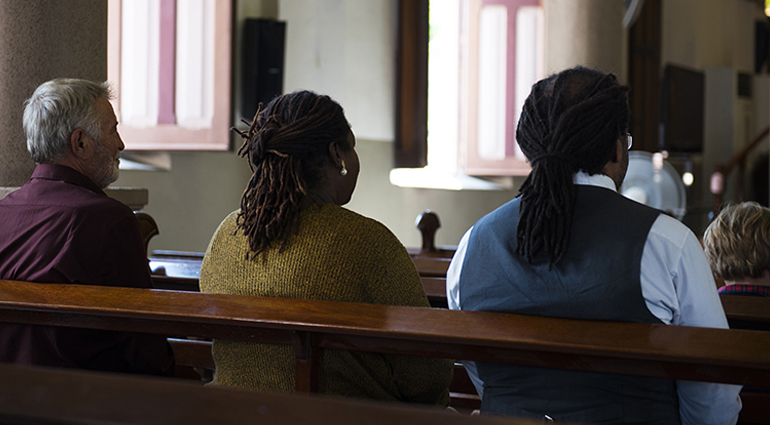Call for Help
Everyone who calls on the name of the Lord will be saved. Acts 2:21
After five deaths and fifty-one injuries in elevator accidents in 2016, New York City launched an ad campaign to educate people on how to stay calm and be safe. The worst cases were people who tried to save themselves when something went wrong. The best plan of action, authorities say, is simply, “Ring, relax, and wait.” New York building authorities made a commitment to respond promptly to protect people from injury and extract them from their predicament.
In the book of Acts, Peter preached a sermon that addressed the error of trying to save ourselves. Luke, who wrote the book, records some remarkable events in which believers in Christ were speaking in languages they did not know (Acts 2:1–12). Peter got up to explain to his Jewish brothers and sisters that what they were witnessing was the fulfillment of an ancient prophecy (Joel 2:28–32)—the outpouring of the Spirit and a day of salvation. The blessing of the Holy Spirit was now visibly seen in those who called on Jesus for rescue from sin and its effects. Then Peter told them how this salvation is available for anyone (v. 21). Our access to God comes not through keeping the Law but through trusting Jesus as Lord and Messiah.
If we are trapped in sin, we cannot save ourselves. Our only hope for being rescued is acknowledging and trusting Jesus as Lord and Messiah.
Have you called on Jesus to rescue you from your sin?
INSIGHT
Luke records the coming of the Holy Spirit in wonderfully descriptive language. For the disciples, the entire three years of walking with Jesus would have been astounding, but the last two months prior to the day of Pentecost would have been especially intense: the trial, the crucifixion, hiding in fear, the resurrection, the ascension. And it all led to the coming of the Holy Spirit and the proclamation of the gospel. Luke doesn’t record the reactions of the disciples, but imagine being in their sandals. As you are together with your closest friends, you hear the sound of wind—inside the house! What appears to be fire descends on you. Even with everything you have seen, the temptation to flinch would have been great. God’s presence was both terrifying and empowering. But it’s this fire that sparks the first gospel message, the message of salvation in Jesus.











